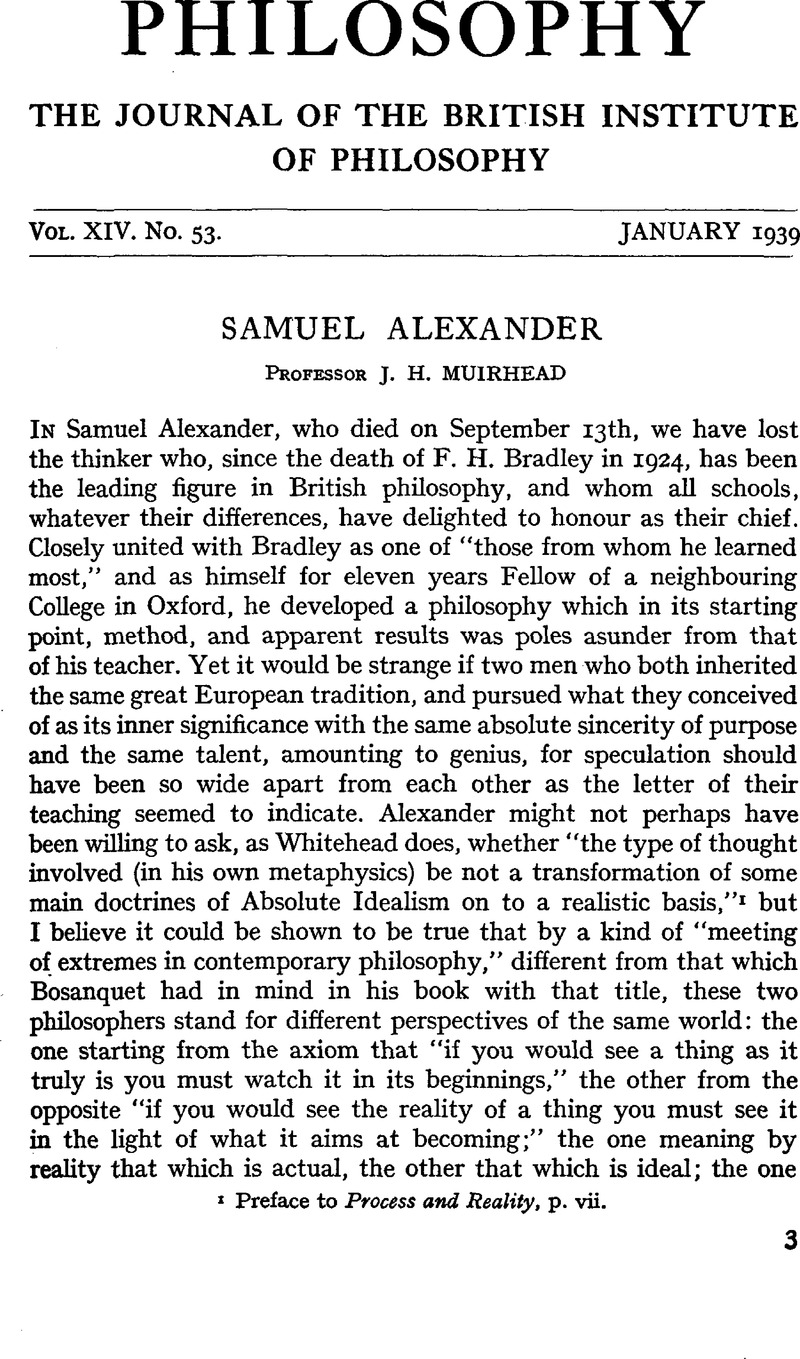Article contents
Abstract

- Type
- Obituary
- Information
- Copyright
- Copyright © The Royal Institute of Philosophy 1939
References
page 3 note 1 Preface to Process and Reality, p. vii.
page 4 note 1 Spinoza and Time, p. 19.
page 5 note 1 E.g. Rudolf Metz in his Hundred Years of British Philosophy.
page 5 note 2 “The Basis of Realism,” Proceedings of the British Academy.
page 5 note 3 Space, Time and Deity, ii, p. 47.Google Scholar Elsewhere he speaks of it in another mood as that “deliberate innocence,” that “strenuous naïveté” which was the chief qualification of the philosopher.
page 6 note 1 Preface, p. viii.
page 8 note 1 Proceedings of the Aristotelian Society, 1908–1909, p. 241.
page 9 note 1 Proceedings of the Aristotelian Society, 1910–1911.
page 9 note 1 Vol. ii, p. 132
page 11 note 1 Time in Alexander taking the place of thought or idea in Spinoza as the other known “attribute” of Substance.
page 12 note 1 Space, Time and Deity, ii, p. 421.Google Scholar
page 12 note 2 There is doubtless a record in Manchester University of the words in which as “public orator” he introduced the recipients of honorary degrees. Nothing that he has written would more vividly illustrate this charming feature of the man.
page 12 note 3 Among his lesser writings are “Molière and Life,” “The Art of Jane Austen,” “Pascal the Writer,” to be found in the John Rylands Library Bulletin, 1926 and following.
page 12 note 4 One of my own liveliest reminiscences of him was once in Edgbaston in the twilight before the lamps were lit, when it was suggested that he should recite some poetry to us, and he unhesitatingly responded with long passages from Shelley in the rich tones of his beautiful voice.
page 13 note 1 Vol. ii, p. 293.
page 13 note 2 Art and Instinct (Spencer, Herbert Lecture, 1927).Google Scholar
page 13 note 3 P. 143. Cp. “Artistic Creation and Cosmic Creation,” p. 12, Lecture, Herz, John Rylands Library Bulletin, 1927.Google Scholar
page 14 note 1 Space, Time and Deity,ii, p. 413.Google Scholar
page 14 note 2 Ibid., pp. 398–9.
- 4
- Cited by


